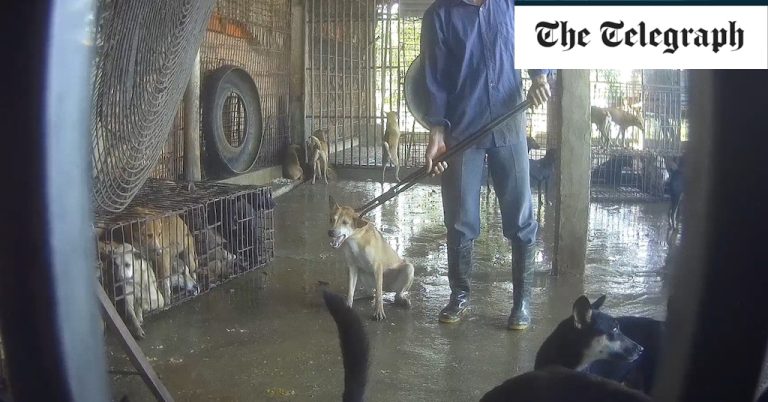Nationwide, rabies vaccination rates in cats and dogs stood at 58 per cent in 2023, well below the 70 per cent required for ‘herd immunity’, which prevents disease transmission. But in some places, coverage has fallen to as low as 10 per cent.
Just 19 cities and provinces have implemented vaccination drives so far this year, immunising some 550,000 dogs and cats, according to reports.
“Vaccinating dogs, including puppies, is the most cost-effective strategy for preventing rabies in people because it stops the transmission at its source,” the WHO said. “In Vietnam, low dog vaccination rates and poor dog management are responsible for the rabies outbreak.”
Yet activists have warned that dog and cat meat trade – which is prominent in Vietnam — is only worsening the outlook.
According to estimates from the anti-dog trade Humane Society International (HSI), five million dogs and one million cats are caught, stolen, trafficked and slaughtered in Vietnam each year.
“[The trade] encourages this mass production of dogs who aren’t vaccinated,” said Lola Webber, director of HSI’s Ending Dog Meat campaign.
“You have this high turnover of dogs, with low vaccination coverage and a population instability – because dogs are constantly being removed, new puppies brought into the vacuum, and dogs transferred nationwide.
“There’s a growing body of evidence that shows a higher rate of rabies positive dogs also being slaughtered and sold in public markets,” she added. “One study found it was as high as 16.4 per cent in samples in Hanoi, which is just huge.”
